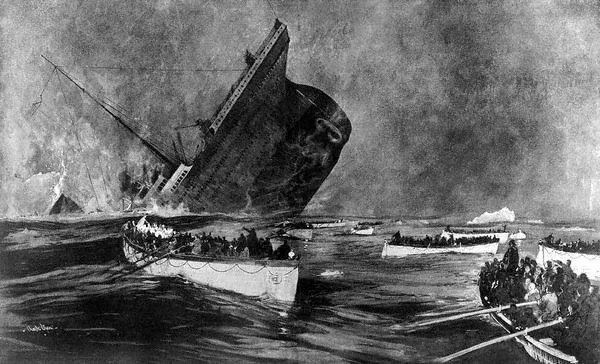Originally published @ Scuba Scoop 23 November 2011
DOES ONE’S SEX AFFECT SCUBA DIVING?
There are two answers to this important question. The short answer is “no.” Much has been written about the difference between men and women divers, and no self respecting dive columnist would stop with such a simple answer. But the fact is, the differences between men and women regarding scuba diving are, with one exception, minor and not significant. The one exception, of course, is pregnancy, which I will discuss in a later question.
The long answer is that women, on average, have smaller lungs, a lower aerobic capacity, a greater percentage of body fat, and less upper body strength than men, and these differences have some effects on diving. Women tend to use less air/minute than men (because of their smaller lung volume), but in recreational diving that is rarely an important factor. Women may not have the same capacity for extreme physical exertion as men, but that too is of little consequence in recreational diving. Since women have a higher percentage of body fat in men, in theory they should have better tolerance to cold water. Although some think the higher percentage of body fat increases the risk of DCS, there is really no solid evidence to support this belief (discussed below).
The long answer also recognizes that the menstrual period poses some concern for women, but this is not ordinarily a limitation. The long answer must also include the observation that men as a group seem to take more risks than women, and as a result show up more frequently in mortality statistics associated with cave, deep, and mixed gas diving.
However, except for pregnancy, the anatomic differences between men and women are simply not a big deal when it comes to scuba diving. Either sex can learn to become quite proficient both as a recreational diver or as a scuba diving professional.
ARE WOMEN AT GREATER RISK THAN MEN FOR DEVELOPING DECOMPRESSION ILLNESS?
Women have on average 10% more subcutaneous fat than men. Since fat tissue can hold five times more nitrogen than blood, it has been suggested that women might be more susceptible to decompression sickness (DCS) than men. However, the few studies in this area are inconclusive. Some studies have suggested an increase in DCS among women, while others have not found any difference. If you read the literature on the subject there appears to be “some controversy”; however, I believe this merely reflects that the data are insufficient to show a difference one way or the other. Not controversial, of course, is the risk of DCS simply from diving. Women need to be every bit as cautious as men in this activity. Until some respected agency comes out with a different set of dive tables for men and women, it is safe to assume the risk for DCS is the same or about the same, and not worry about it.
As for the other component of decompression illness arterial gas embolism there are no reports of an excess incidence in women. Also, the incidence of patent foramen ovale (a theoretical predisposition to arterial embolism) is the same in women and men.
Overall, women do not seem over-represented in DAN’s yearly compilation of diving accident statistics. Of course, the great unknown (as with many other diving accident statistics) is the number of people at risk. Personal experience, as well as the vast panoply of scuba literature, suggest as many women as men enjoy recreational diving.
When scuba first became popular there were very few women divers (Jacques Cousteau’s wife Simone was probably the very first, in the 1940s). Now, about half of newly-certified divers are women. There is nothing in scuba instructors’ collective experience to indicate that women have a greater risk than men for developing decompression illness.
 In summary, inconclusive studies, as well as lack of any perceived gender-related problems by professionals in the field, suggest there is no increased risk of DCS and AGE among women divers.
In summary, inconclusive studies, as well as lack of any perceived gender-related problems by professionals in the field, suggest there is no increased risk of DCS and AGE among women divers.WHAT ABOUT PSYCHOLOGICAL DIFFERENCES BETWEEN MEN AND WOMEN REGARDING SCUBA DIVING?
As already mentioned, men on average seem to take more risks than women. Apart from this observation, which may account for the disproportionate number of men who engage in technical (as opposed to recreational) diving, there seem to be no important psychological differences between men and women that would affect scuba diving.
DO CHANGES DURING MENSTRUATION POSE ANY RISK?
Again, there are no conclusive studies to answer this question. Repeated exposure to hyperbaric pressure has not been shown to affect hormone regulation, ovulation, or menstruation.
Many women are concerned that menstrual bleeding itself could attract sharks or other predators. However, with tampons this is simply not a problem. It is not even clear that it would be a problem without a tampon; the amount of blood that would be released into the water from menstruation during a 30 or 45-minute dive is minuscule. Some women have experienced a greater menstrual flow when diving, but this has not posed any significant problem either. Thus, it appears safe to dive during the menstrual period providing, of course, the woman feels healthy. Obviously any woman who suffers severe menstrual cramps, headaches, or other symptoms related to her period should refrain from diving until fully recovered.
DO ORAL CONTRACEPTIVES POSE A RISK TO WOMEN DIVERS?
There are no data to indicate that use of oral contraceptives increases risk of diving accidents. We know that oral contraceptives and smoking increase the risk of stroke, but smoking is bad for divers in any case. Oral contraceptives have also been associated with increased rates of blood clotting (“thrombo-embolic” disease) and mild hypertension, particularly in women over age 35. However, if oral contraceptives cause the woman no problem on land, there should be no problem under water.
WHAT ABOUT DIVING DURING PREGNANCY?
A short exposure to increased ambient pressure, per se, appears of no consequence to the fetus. However some studies on pregnant animals have shown an increased rate of fetal abnormality from decompression sickness, particularly among sheep; different studies in other animals have not shown an ill effect on the fetus. Like many other medical conditions, the available studies on this issue are inconclusive.
Based on what is known about pregnancy, and about diving, my recommendation (and that of most physicians) is that pregnant women should not dive. There are three reasons for this blanket recommendation. First, pregnancy is only nine months, a relatively short period in one’s life; it is simply not worth taking any unnecessary risks by subjecting the unborn child to an abnormal environment. The body experiences marked pressure changes under water, changes that are believed to be safe for adults who follow recreational guidelines. However, considering that accidents do occur, diving is riskier than not diving. We have so little information about decompression on the developing fetus, and much of the information is conflicting, that common sense suggests any risk is simply not worth taking.
The second reason against diving while pregnant has to do with treatment of diving injuries. If a pregnant diver does develop DCS or gas embolism, she will be referred for hyperbaric therapy. Hyperbaric therapy poses a theoretical risk to the unborn child, because of the high oxygen pressures. The developing eye of a fetus is particularly prone to oxygen toxicity. Although non-diving pregnant woman have been successfully treated with hyperbaric therapy (for carbon monoxide poisoning), there is always concern a fetus could be harmed, especially if multiple treatments are needed.
It has been recommended by some authors that pregnant women who do dive stay shallower than 33 feet (less than 2 atmospheres total); the rationale is that shallow diving should at least prevent any risk of the bends. However, there are no data to support this recommendation, and a sensitive fetus might not like any increase in nitrogen or oxygen pressure. Certainly the risk of air embolism is not diminished by staying shallow.
The third reason against diving is that pregnancy is often accompanied by changes which could make a dive uncomfortable, if not downright hazardous. These changes include frequent bouts of nausea (“morning sickness”), gastric reflux (from the enlarged uterus), and discomfort from increased abdominal girth. In theory a woman could become nauseous on the dive boat (abetted by any sea sickness), experience regurgitation under water, and then lose her weight belt as she tries to adjust it for her larger size all on one dive!
In summary, it is a strong recommendation that any woman who is pregnant (or thinks she may be, or is trying to become) refrain from diving.
HOW SOON CAN ONE DIVE AFTER PREGNANCY?
I would leave this decision up to the woman and her obstetrician. The answer should depend on how quickly the woman has regained her strength, whether the delivery was vaginal or by C-section, whether there are any post-partum complications, etc. A general recommendation is that the woman should be able to return to diving when she feels back to her baseline health and has medical clearance to resume strenuous activity.
WHAT SHOULD BE DONE IF A WOMAN INADVERTENTLY DIVES WHILE PREGNANT?
Although diving during pregnancy is definitely not recommended, on occasion a woman may dive without knowing she is pregnant (i.e., very early in gestation). This event should not be cause for alarm. There is certainly no evidence to warrant pregnancy termination because the fetus was briefly exposed to higher pressures. However, if the dive was complicated by injury to the woman, then the specifics of the case need to be discussed with the diver’s obstetrician and, if necessary, a dive medicine specialist.
SHOULD WOMEN EXPECT SPECIAL TREATMENT WHEN SCUBA DIVING?
Ideally, no. The stereotype of a weak, mechanically disinterested, and/or uncoordinated female is out of date and harmful to both sexes. Any woman who expects manual chores will be done for her (carrying her tank, attaching the regulator, etc.) because she is a woman, loses the opportunity to learn important skills and remain self-sufficient. Any man who abridges a woman’s chance for self-sufficiency by insisting on doing things for her not only demeans her but also perpetuates an outdated stereotype. Also, if the woman is his dive buddy, he may weaken skills she may one day need to help him.
Scuba diving is a level playing field; it is no place for machismo behavior or sexism of any sort. Equality certainly reigns at the professional level. Hundreds of women instructors teach open water and advanced courses to men and women. Women run dive shops, operate dive boats and lead diving expeditions. Resorts that carry tanks, attach BC’s or perform other dive-related chores for its customers do so for men and women alike. Obviously, scuba diving is no longer “a man’s world” as it was perhaps a generation ago. Today, it should be as acceptable for a man to ask a woman for help with equipment or some other problem, as vice versa. When diving, women and men should want and expect to be treated as equals.
Thanks to SCUBA DIVING EXPLAINED
Kathy Dowsett






Leave A Comment